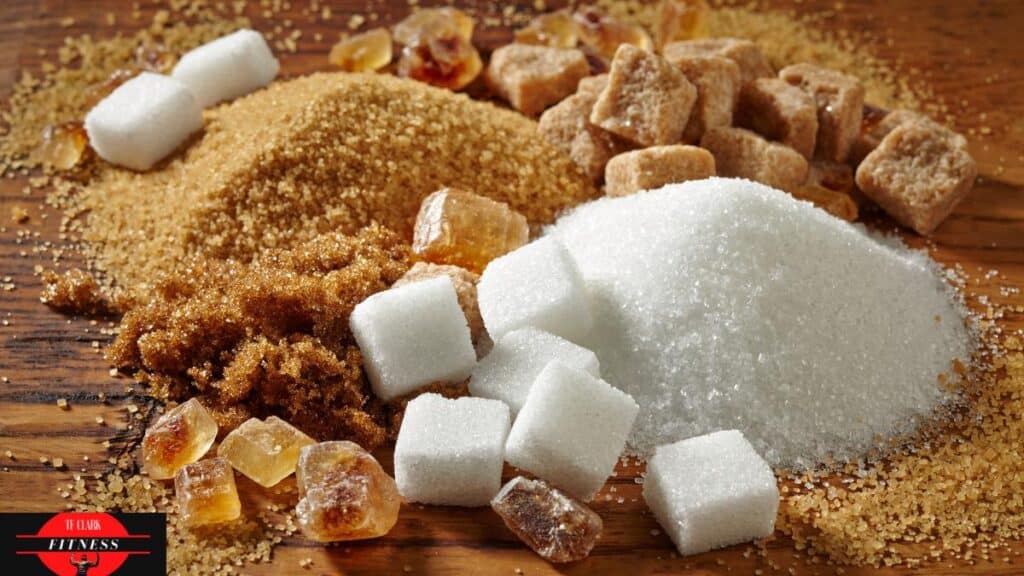In the quest for muscle growth, the focus often centers on protein intake, workout routines, and recovery practices. However, an equally important aspect that demands attention is the impact of dietary choices, particularly sugar consumption, on muscle building. While sugar plays a complex role in our diet, understanding its effects on muscle growth, fat loss, and overall health is crucial for optimizing fitness outcomes.
This article delves into the scientific research surrounding sugar’s influence on muscle building, its calorie and chemical effects on health, and provides guidance on dietary practices for optimal muscle growth.
Understanding Sugar: A Double-Edged Sword
Sugar, a simple carbohydrate, is a primary energy source for the body. It’s found naturally in fruits, vegetables, and dairy products, but the added sugars in processed foods are of concern. Consuming high amounts of added sugars can increase body fat, hinder muscle growth, and negatively impact overall health.
The Caloric Perspective: Energy Balance and Muscle Building
Muscle building is influenced by caloric balance — consuming more calories than expended leads to weight gain, while a caloric deficit results in weight loss. Sugars, notably added sugars, are dense in calories with minimal nutritional value. Excessive intake can contribute to a caloric surplus, leading to fat accumulation rather than muscle growth.
Chemical Effects: Insulin Response and Muscle Synthesis
Sugar impacts muscle building through its effect on insulin, a hormone that regulates blood glucose levels. After consuming sugar, blood sugar levels spike, prompting an insulin response to facilitate glucose absorption by cells. While insulin is anabolic and can promote muscle growth by enhancing protein synthesis, chronic high sugar intake can lead to insulin resistance. This condition impairs nutrient delivery to muscles, hindering growth and recovery.
Scientific Research on Sugar and Muscle Building
Research highlights the nuanced role of sugar in muscle metabolism. A study published in the “Journal of Physiology” indicates that while acute insulin spikes post-workout aid nutrient delivery and muscle recovery, consistent high-sugar diets contribute to insulin resistance, negatively affecting muscle gains.
Furthermore, research in “Nutrition & Metabolism” suggests that diets high in added sugars can increase body fat, indirectly impacting muscle definition and growth by altering hormone levels, such as testosterone, that are critical for muscle synthesis.
Optimal Sugar Intake for Muscle Building
For individuals focused on muscle building, managing sugar intake is essential. The American Heart Association recommends limiting added sugars to 9 teaspoons (36 grams) daily for men and six teaspoons (25 grams) for women. Emphasizing whole foods with natural sugars, like fruits, can provide the body with energy and essential nutrients without the adverse effects of added sugars.
The Role of Processed Foods
Processed foods often contain high added sugars and should be consumed minimally. These foods can lead to excessive caloric intake, poor nutritional quality, and hinder muscle growth efforts. For muscle building, focus on nutrient-dense foods that support muscle synthesis and recovery, such as lean proteins, whole grains, healthy fats, and fruits and vegetables.
The Best Diet for Muscle Building
The optimal muscle-building diet is balanced, focusing on whole foods to provide a wide range of nutrients. A high-protein diet with adequate carbohydrates and healthy fats supports muscle growth and recovery. Incorporating various protein sources, such as lean meats, fish, dairy, and plant-based proteins, along with complex carbohydrates and healthy fats, ensures a well-rounded diet that supports muscle-building goals.
Scientific Support for Dietary Choices
Research supports a diet rich in lean protein, complex carbohydrates, and healthy fats for muscle growth. A study in the “American Journal of Clinical Nutrition” found that higher protein diets, combined with resistance training, significantly enhance muscle mass and strength gains compared to lower protein diets.
Conclusion
Sugar’s role in muscle building is complex, with both caloric and chemical considerations to account for. While sugars are not inherently wrong, managing intake, especially of added sugars, is crucial for optimizing muscle growth and overall health.
Individuals can effectively support their muscle-building goals by focusing on a balanced diet rich in whole foods, limiting processed foods, and understanding the nuances of sugar’s effects on the body. Scientific research underscores the importance of dietary balance, highlighting the need for a holistic approach to nutrition in the pursuit of fitness and health.




